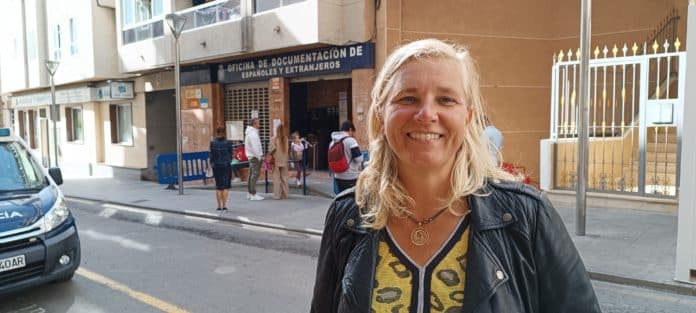This week, following a visit to the National Police office in Torrevieja, the Oficina de Documentación, The Leader sat down with Gitte Lund Thomsen, the Councillor for International Residents, to discuss the importance of both the padrón, and residencia.
This week, we will talk about the padrón, and next week, residencia.
It is important to note that we are talking specifically about Torrevieja, and whereas many of the rules and procedures apply nationally, local functions can differ from town hall to town hall, so it is important you check with your own local office.
Firstly, it is crucial that all residents are registered on the Municipal Register, most commonly known as the padrón, as proof of this is necessary for so many administrative functions, such as registration or renewal of education or health services, functions attached to social security, some vehicle administrative procedures, and residencia and TIE, amongst others.
In order to be registered on the padrón, you need to apply at the town hall. Once issued, a padrón certificate is normally only valid for 3 months, after which, if you need to present it again, you will have to return to the town hall. The good news for Torrevieja residents is that this can now be done automatically online, and very quickly, avoiding the need to physically present yourself at the office. However, we must stress that the three-monthly renewal is ONLY necessary if you need the document to present at an administration, otherwise, you do not need to renew it every 3 months. That said, every 5 years, your status on the register must be renewed, so you will have to present yourself and your documentation to do this.
Some residents have lost their status on the padrón, without even realising. If you receive a letter from the town hall, you must act on the instructions they send to you in order to renew your status.
One other key point about being on the padrón, which has only changed recently, is that you must be a resident, or about to become a resident. If you own a holiday home, for example, you no longer qualify. You do not have to own the property however, you can be registered if you are renting.
If you are planning to leave the country, you must deregister yourself from the padrón, and then your residencia. The padrón can be cancelled at the town hall, and residencia at the National Police office in Torrevieja.
Gitte concludes by pointing out that her department exists for the benefit of international residents, and if you need help or advice, you can contact them. Of course, they cannot influence your application for residencia, for example, or speed up the appointment process, but they can help guide you in the right direction.
The International Residents Department in Torrevieja can attend to residents in English, as well as French, German, Scandinavian, Russian, Bulgarian, and, of course, Spanish. You can email them direct, at pangea@torrevieja.eu, and you can make an appointment to visit them in person via the website, torrevieja.es, where you should look for the Residentes Internacionales Oficina Pangea, and you can visit them in La Mata town hall, or the office in La Siesta, calle Paganini, again, by appointment.
Finally, on Thursday, the Councillor for International Residents will be joining the N332 Road Safety group when they give a talk to local residents in Dominos Bar in Punta Prima. Everyone is welcome to the talk about changes to traffic law in Spain, and you can speak to Gitte after that. The talk starts at 4 p.m.






